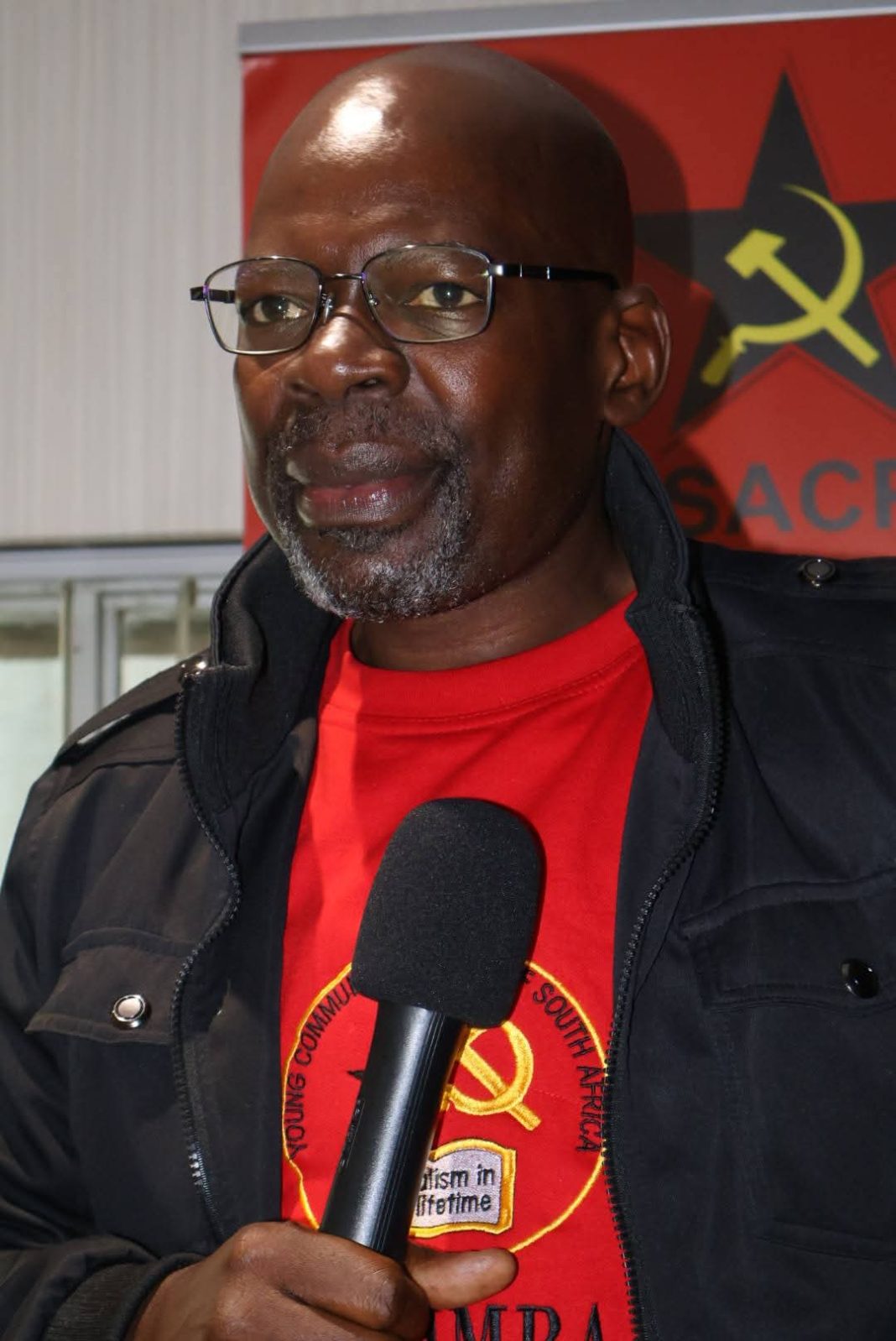By Johnathan Paoli
The South African Communist Party (SACP) has warned it will no longer accept a subordinate role within the ANC-led tripartite alliance, insisting it is not a junior partner and will not bow to unilateral decision-making.
The party’s general secretary Solly Mapaila also stressed the party’s right to act independently in pursuit of the national democratic revolution (NDR) and signaled its readiness to contest the upcoming municipal elections.
He stressed that the SACP would continue to champion the interests of the working class while demanding equal status in shaping South Africa’s transformation agenda.
Speaking at a press briefing in Johannesburg on the closing day of the party’s three-day plenary, Mapaila linked the struggles against unemployment, poverty, and inequality directly to the defense and advancement of the national democratic revolution.
“We will never accept unilateralism. The Communist Party is not a junior partner. We are equals, and the future of our revolution depends on recognising that fact,” said Mapaila.
“The crisis facing South Africa cannot be solved within the parameters of neo-liberal capitalism. We must build people’s power, deepen working-class unity, and intensify the struggle for socialism.”
One of the most significant outcomes of the SACP’s plenary was its decision to convene a Conference of the Left in September, in partnership with progressive and working-class formations.
The gathering will bring together unions, civic organisations, and socialist movements to coordinate campaigns against capitalist exploitation, austerity, and creeping authoritarianism.
Mapaila said the initiative forms part of the SACP’s long-standing push for a “reconfigured alliance” with the ANC and Cosatu, while also asserting the independence and leadership of the working class.
He argued that a revitalised left bloc is essential to resist both right-wing populism and entrenched neoliberal austerity, which have shaped South Africa’s post-apartheid economic path.
Mapaila singled out the South African Reserve Bank (SARB), which recently lowered its inflation target to 3%, accusing it of entrenching anti-worker policies.
The SACP warned that such a stance would drive up interest rates, worsen household indebtedness, and suppress industrial investment.
Mapaila said the Bank was prioritising financial markets over jobs and development, echoing the 1996 GEAR policy framework, which the party has long condemned as a betrayal of the Reconstruction and Development Programme.
Instead, he called for a developmental monetary policy to support industrialisation, structural transformation, and full employment.
The meeting also highlighted the growing impact of the People’s Red Caravan, described as “a living expression of people’s power.”
The initiative mobilises communities to set up food co-operatives, repair schools and clinics, restore bridges, and improve safety.
In areas such as Motlhabe (North West) and Matibidi (Mpumalanga), Red Caravan volunteers have worked with residents, trade unions, and progressive traditional leaders to rebuild infrastructure and advance food sovereignty.
Mapaila stressed that this was not charity, but an organised, militant response to capitalist neglect.
The SACP appealed for artisans, engineers, architects, and other professionals to contribute their skills, while calling for resources such as tractors and irrigation systems to expand the project into a mass programme of rural transformation.
Raising alarm over accelerating de-industrialisation, Mapaila cited the closure of Iscor under ArcelorMittal and the collapse of 12 automotive companies in the past two years, including Goodyear, which has left thousands without jobs.
The party pledged solidarity with unions such as NUMSA and NUM, demanding that government defend industries against punitive US tariffs and corporate retrenchments.
Reiterating the need to build a “people’s economy,” Mapaila said co-operatives, collective ownership, domestic production, and a co-operative banking system must be central to South Africa’s development path.
On governance, the SACP warned that spiralling crime and corruption threaten democracy itself.
While welcoming Police Commissioner Fannie Masemola’s decision to return 121 case dockets to the KwaZulu-Natal political killings task team, Mapaila stressed that deeper reforms were needed.
He also described gender-based violence as a “national emergency,” citing nearly 1,000 women murdered and more than 9,000 rapes in just three months of 2025.
The party further condemned government’s “stealth privatisation agenda,” pointing to reforms at Post Bank, the handover of Transnet’s rail network to private operators, and growing private control of water supply.
These moves, combined with $1.5 billion in recent World Bank loans, were framed as threats to national sovereignty and accelerators of privatisation under the guise of reform.
The plenary confirmed the removal of ANC national chairperson and Mineral Resources Minister Gwede Mantashe from the SACP’s central committee, underscoring escalating tensions within the tripartite alliance ahead of the 2026 Local Government Elections.
Mapaila defended the decision, saying the party must assert its independence to advance workers’ rights and socialism.
He accused ANC leaders of a “right-wing drift” through the Government of National Unity (GNU) with the DA.
Mapaila reiterated that South Africa’s multiple crises cannot be resolved without a decisive break from neoliberalism.
INSIDE METROS

